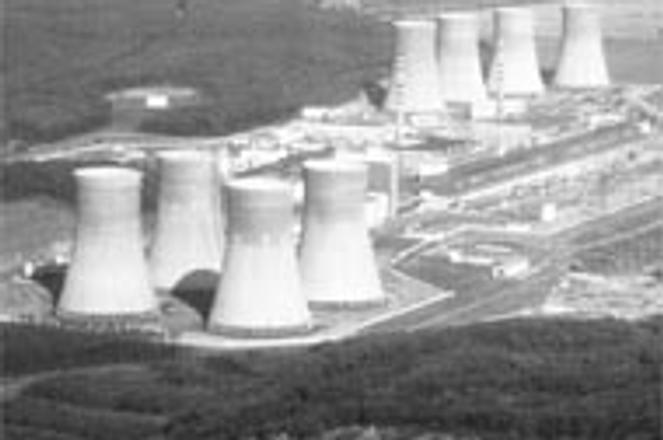"I'm afraid the situation won't change if these decisions remain in political rather than professional hands,"
Ondrej Studenec, an official from the Ministry of Economy's Energy Policy Department
Rags to riches. Monopoly electricity producer SE hopes Mochovce nuclear plant will brings dividends.Courtesy of Mochovce
Over the last four years, Slovenské Elektrárne (SE), the country's monopoly electricity provider, has suffered a serious decline in profits due to the energy price policy of the outgoing government of Premier Vladimír Mečiar. Both the company and market analysts now say that SE may collapse unless Slovakia's next government either increases electricity prices or deregulates them entirely.
Since 1994, SE has repeatedly failed to push through significant increases in tariffs for electric energy, and has been faced down by a government determined to keep energy prices at a politically acceptable low level. As a result, nominal electricity rates have actually declined in real terms, and SE's operating margins have deteriorated steadily from 39.3 million Sk ($1.05 million) in1994 to 16 million Sk ($400,000) in 1997.
"We have tried to persuade the government to allow an increase in energy prices, but they have always returned our proposals to us," said Ján Dohňanský, SE Energy Supervision Office Director.
Ondrej Studenec, an official in the Economy Ministry's Department of Energy Policy, explained that "in accordance with the new energy law [in force since July 1], our department proposes prices to the Finance Ministry, but they keep sweeping our proposals off the table." Studenec said that the issue was politically very sensitive. "I'm afraid the situation won't change if these decisions remain in political rather than professional hands," Studenec added.
The Finance Ministry refusedto comment on the issue when contacted by The Slovak Spectator.
Price hikes
SE wants prices to be increased for both small and large consumers of electricity. "The company does not profit from its sales because of inefficient price regulation," said Dohňanský. "Investments in the company's development must come from profits, but we have to use our profits to support the low prices for households."
The electricity price for Slovak households is highly regulated by the Finance Ministry, and is currently one of the lowest in Europe as well as around the world. "Household tariffs are subsidised by so-called cross subsidies within the tariff system," said Dohňanský, explaining that higher industry tariffs help to cover losses from sales to small "low current" consumers such as households. "These prices are kept incredibly low at SE's expense, but the state does not contribute a single extra penny," said Dohňanský.
"The prices of energy are highly undervalued, and the current price regulation does not reflect the real situation on the market," agreed Dušan Meszáros, an analyst at ING Barings. Meszáros stressed that SE is facing mounting financial pressures from its environmental modernisation investments, scheduled to run to 65 billion Sk ($1.72 bn) by 2002.
According to Dohňanský, it is vital to increase the prices for households, as current sales revenues cover no more than 40% the costs of production and transmission of electricity to these small consumers. "Concerning wholesale producers, we are almost at the European price level, but regarding small consumers, the only country in Europe that sells for lower prices is Albania," confirmed Jozef Valach, director of SE's Mochovce nuclear plant.
Expensive future
The prospective price increase will be left to a new government to decide. Dohňanský said that price regulation policy would have to be altered, but that with a monopoly electricity provider on the market, prices would still have to be regulated. "There has to be a ceiling for energy prices, and we are only trying to push through an increase in prices," he said.
Electricity industry experts agreed that a price increase was inevitable, and said that further delays in applying these measures might cause an unbearable financial situation at SE. "The later we start increasing prices, the faster and higher these will have to go," said Studenec.
"Prices will face an approximately 50% increase, but this would be too drastic for the public if done in one go," said Meszáros. "It depends on political agreement within the future government to consider the steps which will have to be applied to achieve real prices."


